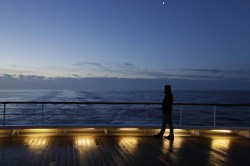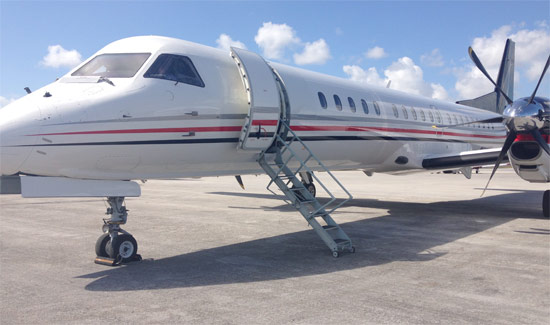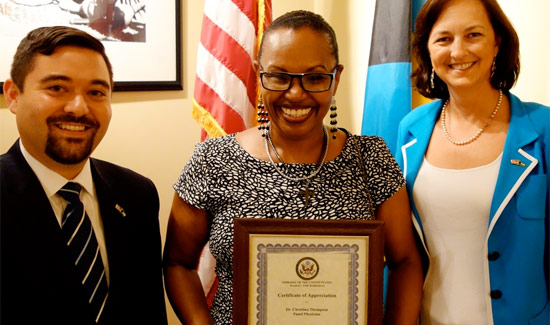
Over the past decade, nearly 200 people have disappeared from cruise ships, never to be found. Eight have already vanished this year, according to a cruise industry expert who tracks these incidents.
How does that happen?
Imagine a small city with thousands of residents who change every week or two. Imagine a rotating crew from around the world. They come together and travel from port to port, a vast ocean separating destinations. There are no police and no consistent laws.
It is, in almost every way, the setting for the perfect crime. Or suicide. Or a terrible accident.
In February, Vancouver businesswoman and mother of two Fariba Amani was on this very cruise ship, the Bahamas Celebration.
She boarded with her boyfriend, Ramiz Golshani, a man she had met at a salsa dancing class in 2011.
Their relationship was tumultuous. At one point last October, Amani, 47, went to a Vancouver-area private investigator and wanted to hire him to follow Golshani. But that is only part of their story: the investigator, Thomas Dolo, says Amani never followed through on her plans.
The couple left Vancouver together for a two-day voyage from Palm Beach, Fla., to the Bahamas.
Only Golshani returned to Vancouver. He has declined to talk to reporters.
Read More of Petti Fong’s article on the Toronto Star
Brett Rivkin, a maritime lawyer based in Miami, says the number of sexual assaults and other crimes, disappearances and fires have increased dramatically as cruise ships become ever larger. Numbers are hard to come by, but he says he’s seeing far more civil suits being filed against cruise ships.
The International Cruise Victims Association, a group advocating for more safety measures aboard cruise ships, reports that at least 170 people have gone missing at sea since 1995.
At the same time, investigations have become tougher.
Cruise ships are almost always incorporated or “flagged” in countries where they are favourably taxed, such as the Bahamas, Liberia and Panama. That allows owners to skirt U.S. taxes and U.S. labour laws, according to Rivkin.
It also means that the country where the ship is flagged is responsible for investigating any possible criminal activity onboard.
By Petti Fong
The Toronto Star


